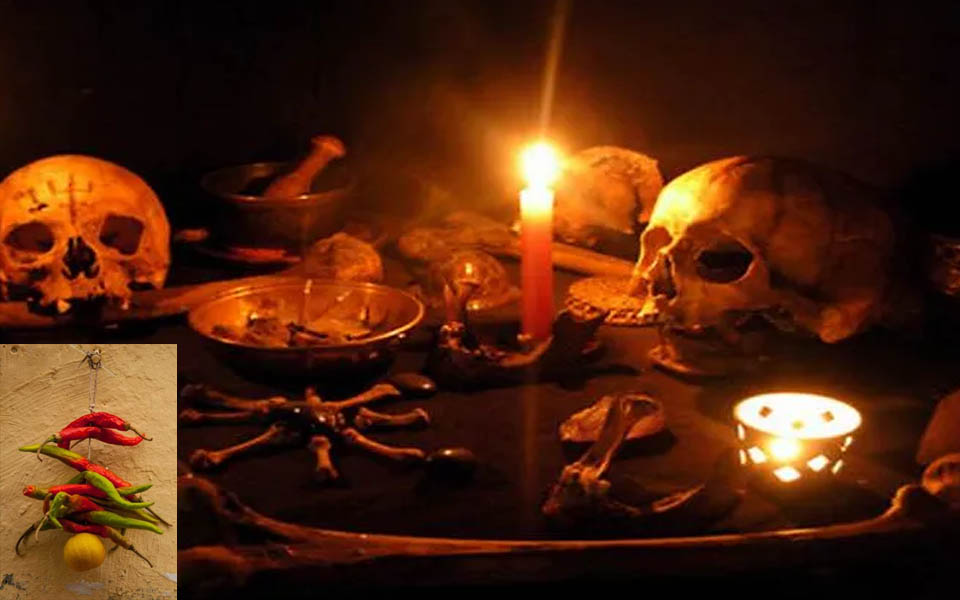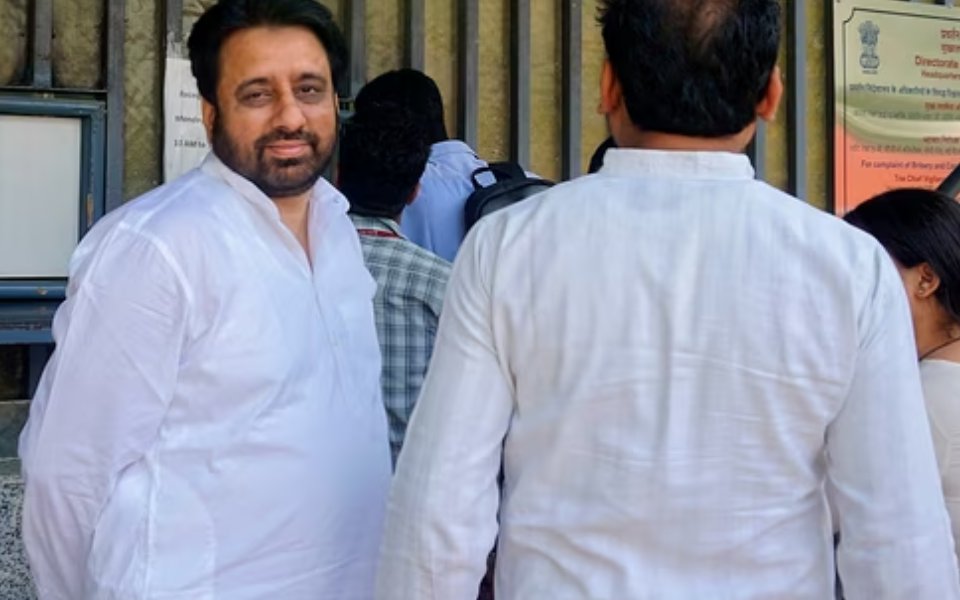Bengaluru, Jan 23: Over two years after it was passed by the Karnataka legislature, the B S Yediyurappa-led BJP government has finally notified the much-hyped anti- superstition law that aims to prevent and eradicate "inhuman evil practices".
Interestingly, the BJP,which was then in the opposition, had expressed strong reservations about the bill, piloted by the Siddaramaiah led Congress government and passed by the state legislature in November 16 2017.
The Karnataka Prevention and Eradication of Inhuman Evil Practices and Black Magic Act RPT Act, 2017, that intends to protect the common people against "evil" and "sinister" practices, shall come into force with effect from January 4 2020, the government notification issued earlier this month said.
The Act seeks to combat and eradicate other such inhuman practices propagated and performed in the name of "black magic" by conmen with the sinister motive of exploiting the common people,thereby destroying the social fabric in society.
Further, it aims to bring social awakening and awareness in the society and create healthy and safe social environment.
Leader of the Opposition in the Assembly Siddaramaiah congratulated the BJP for enforcing the Act by rectifying its mistake of "condemning, hounding and maligning" his government when they tried to implement the Act with an intention to stop it .
He also hoped that things which are beliefs now "don't turn into superstition under pressure,"
Considered similar to the one in Maharashtra, the Act has 'savings' and 'schedule' categories, which classify practices that could be tolerated and those that need to be controlled or prohibited.
The notification said nothing in the act shall apply with respect to the forms of worship mentioned under the heading 'savings'
These include practices like 'pradakshina', yatras, 'parikramas' performed at religious places, among other normal practices.
It also includes the advice with regard to 'Vastushastra', advice by 'jyothishya' and other astrologers
Practices included under the 'schedule' for prohibition are -- performing any inhuman, evil act and black magic in search of precious things, bounty and hidden treasures
Other practices listed under 16 points for prohibition are facilitating any person to roll over leaves of leftover food by other people in public or religious places or similar practices that violate human dignity; subjecting women to inhuman and humiliating practices like parading them naked in the name of worship or otherwise, such as "bettale seve".
Also, forcing any person to carry out evil practices such as killing of an animal by biting its neck and coercing any person or persons to perform 'fire walk' at the time of 'jatras' (temple/village fest) and religious festivals have also been included, it added.
During the passage of the bill, certain amendments sought were made part of the bill, and a practice like Mudradharane by Madhwa Brahmins was exempted.
As per this practice, 'Mudras' (dyes) usually made of gold or copper are heated on coal fire and stamped on the body.
'Vashikaran', practiced in occult science as an act of subjugation or advertising about it in the name of treatment has been banned under the act, following the suggestions made by the members during the debate in the assembly.
The legislation was earlier proposed as The Evil, Inhuman and Superstitious Practices Prevention Bill.
After omitting the word superstitious, it was titled 'The Karnataka Prevention and Eradication of Inhuman Evil Practices and Black Magic Bill, 2017.'
Superstitious practices, including black magic, are punishable under the Act for up to seven years and a maximum fine of Rs 50,000 can be imposed.
The act also aims to bring social awakening and awareness in society and create a healthy and safe social environment, and also calls for appointment of vigilance officers to oversee the implementation of the law.
ನಾವು ಮೌಢ್ಯನಿಷೇಧ ಕಾಯ್ದೆಯನ್ನು ಜಾರಿಗೆ ತರಲು ಹೊರಟಾಗ ನಮ್ಮನ್ನು ನಿಂದಿಸಿ,ಪೀಡಿಸಿ ಅಪಪ್ರಚಾರ ಮಾಡಿ, ಅದನ್ನು ತಡೆಯಲು ಪ್ರಯತ್ನಿಸಿದ್ದ @BJP4Karnataka ಈಗ ತಪ್ಪನ್ನು ತಿದ್ದಿಕೊಂಡು ಕಾಯ್ದೆಯನ್ನು ಜಾರಿಗೆ ತಂದದ್ದಕ್ಕೆ ಅಭಿನಂದನೆಗಳು.
— Siddaramaiah (@siddaramaiah) January 23, 2020
ಈಗಿನ 'ನಂಬಿಕೆ' ಒತ್ತಡಕ್ಕೆ ಬಾಗಿ 'ಮೂಢನಂಬಿಕೆ' ಆಗದಿರಲಿ.
ಮಡೆಸ್ನಾನ, ಮಾಟ–ಮಂತ್ರ, ವಶೀಕರಣದಂತ ಅನಿಷ್ಟ ಪದ್ಧತಿ ಆಚರಿಸುವವರನ್ನ ಶಿಕ್ಷೆಗೆ ಗುರಿಪಡಿಸಲು ಅವಕಾಶ ಇರುವ,@siddaramaiah ಸರ್ಕಾರದ ಮಹತ್ತರ ‘ಮೌಢ್ಯ ನಿಷೇಧ ಕಾಯ್ದೆ’ಯನ್ನ @BSYBJP ಸರ್ಕಾರ ಜಾರಿ ಮಾಡಿದ್ದು ಸ್ವಾಗತಾರ್ಹ
— Karnataka Congress (@INCKarnataka) January 23, 2020
ಸಮಾಜದೊಳಗಿನ ಮೌಢ್ಯವನ್ನ ಈ ಕಾಯಿದೆಯ ನೆರವಿನಿಂದ, ನಿರಂತರ ಜನಜಾಗೃತಿಯ ಮೂಲಕ ತೊಡೆದು ಹಾಕುವ ಹೊಣೆ ನಮ್ಮೆಲ್ಲರದು pic.twitter.com/EJ2ZD3Y7bL
Let the Truth be known. If you read VB and like VB, please be a VB Supporter and Help us deliver the Truth to one and all.
Jakarta, Apr 27: A strong magnitude 6.1 earthquake shook the southern part of Indonesia's main island of Java on Saturday, but there were no immediate reports of injury or significant property damage.
The U.S. Geological Survey said the quake struck 102 kilometers (63 miles) south of Banjar city at a depth of 68.3 kilometers (42.4 miles). There was no tsunami warning.
High-rises in the capital Jakarta swayed for around a minute and two-story homes shook strongly in the West Java provincial capital of Bandung and in Jakarta's satellite cities of Depok, Tangerang, Bogor and Bekasi. The quake was also felt in other cities in West Java, Yogyakarta and East Java province, according to Indonesia's Meteorology, Climatology and Geophysical Agency.
The agency warned of possible aftershocks.
Earthquakes are frequent across the sprawling archipelago nation, but they are rarely felt in Jakarta.
Indonesia, a seismically active archipelago of 270 million people, is prone to seismic upheaval because of its location on major geological faults known as the Pacific “Ring of Fire.”
A magnitude 5.6 earthquake in 2022 killed at least 602 people in West Java's Cianjur city. It was the deadliest in Indonesia since a 2018 quake and tsunami in Sulawesi killed more than 4,300 people.
In 2004, an extremely powerful Indian Ocean quake set off a tsunami that killed more than 230,000 people in a dozen countries, most of them in Indonesia's Aceh province.





